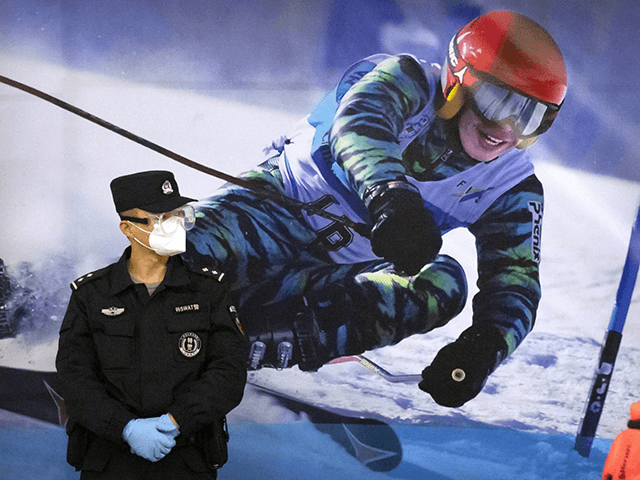China announced over the weekend that it would ban local officials and staffers in Zhangjiakou, the suburb of Beijing scheduled to host the 2022 Winter Olympics, from leaving the area without “approval.”
The edict came down presumably because the spectacle of government officials fleeing from the coronavirus surge in the area would be embarrassing and damaging to the Chinese Communist Party’s (CCP) false narrative of complete victory over the Chinese coronavirus pandemic that it created.
China’s state-run Global Times strove to put the happiest possible face on the travel restrictions for the “Economic and Technological Development Zone of Zhangjiakou,” bizarrely applauding the wisdom of “experts” who told local officials to “avoid a one-size-fits-all approach” while announcing those officials will henceforth need permission from higher authorities before daring to leave their city.
The same announcement also instructed local officials to “dissuade relatives and friends from medium- and high-risk areas from coming to Zhangjiakou.”
Senior officials issued similar orders for two other regions experiencing coronavirus surges, while the Global Times said several universities in Beijing have voluntarily decided to begin winter vacations early so they can shut down during the Chinese coronavirus outbreak.
The fear among Chinese health officials is that travel during the upcoming holiday season could spread the coronavirus, creating a major health crisis before the Olympics begin on February 4:
“As the risks of domestic coronavirus transmission may increase during the upcoming New Year and Spring Festival, greater efforts should be made in controlling the pandemic through a science-based and targeted approach to make sure of a healthy and safe festival for all Chinese people,” said Wu Liangyou, a deputy director of the National Health Commission, at a press conference on Saturday.
Wang Guangfa, a respiratory expert at Peking University First Hospital, told the Global Times on Sunday that it is still too early to decide whether other places should follow suit in asking residents to stay put during the Chinese New Year.
“China emphasizes precise pandemic control based on different conditions in different regions instead of implementing the same policy across the nation. The precise pandemic control reflects the balance China tries to keep between preventing the pandemic from spreading and guaranteeing people a normal life, ” said Wang.
Heavy travel during the Lunar New Year season – which includes the largest migration wave in the world each year, as 300 million traveling workers return home to visit their families – was a major factor in the early spread of the coronavirus. Even after Chinese officials shut down internal travel from Ground Zero of the pandemic in Wuhan in early 2020, they notoriously permitted foreign travel for months afterward, spreading Chinese coronavirus around the world. China sharply restricted travel during Lunar New Year 2021, all but canceling the holiday.
The worst “hotspots” in the current coronavirus surge are located in eastern China. A dozen companies reportedly suspended operations in the city of Zhejiang on Monday at the request of local officials, while other cities are deploying mass coronavirus testing and portable labs, even though each of these municipalities has supposedly detected less than a dozen cases of the “Delta variant” of Chinese coronavirus.
Chinese health officials claimed on Saturday that over 82 percent of the country’s 1.41 billion inhabitants have now been vaccinated against the coronavirus. The vaccination rate was said to be much lower for vulnerable elderly Chinese, falling to less than 30 percent for people over 80 in some areas.

COMMENTS
Please let us know if you're having issues with commenting.